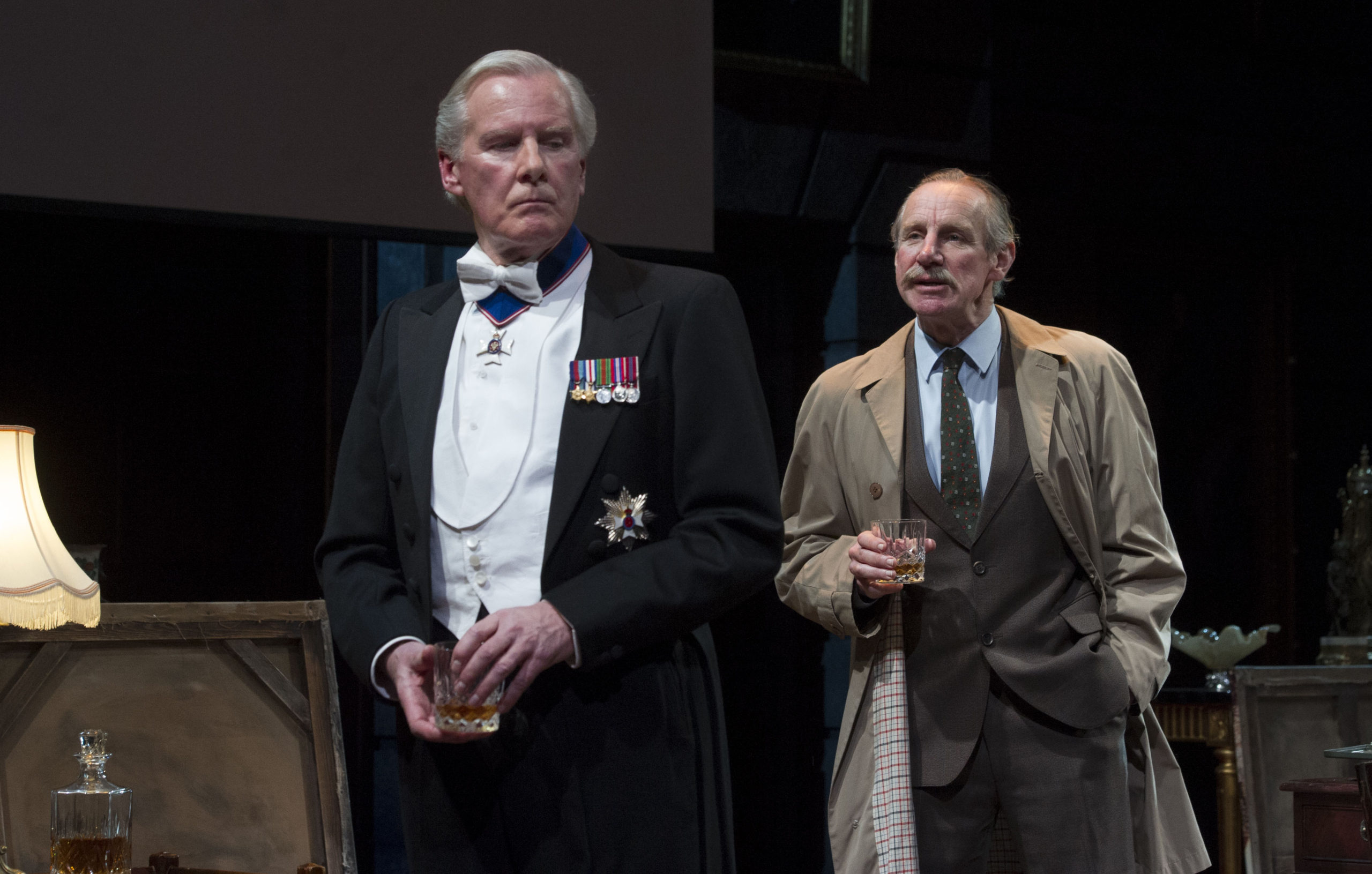
The British are, or at least used to be, known for their modesty, their discretion and self-effacement. They were also known for, and still are, their arrogance and the class system. Also peculiar to Britain is the old-school-tie network and exclusive, often single-sex, education. Put all those attributes together and you get a very particular breed of upper-class young men. Now, if the perceived threat to world peace was Hitler and Fascism, as it was in the 1930s, then it’s not surprising that young, betweeded, pipe-smoking, reactionary intellectuals would turn to communism for the world’s salvation. This led to a whole generation of fellow travellers but, more significantly, it resulted in Britain’s most notorious and highest placed spy ring – the Cambridge Five.
There is no one better to explore and reveal the foibles and functions of British society than Alan Bennett. His two plays, An Englishman Abroad and A Question of Attribution, performed together as Single Spies, give us an insight into the murky world of espionage but, more importantly, reveal an awful lot more about our society.
It is over eighty years since the spies were recruited, nearly thirty years since Bennett’s plays were first performed, but if you look at the CVs of many members of the government and the ruling classes you will see nothing much has changed, apart from the fact that none of them, we assume, are spies.
An Englishman Abroad is based on events that actually happened. In 1958 actress Coral Browne was appearing in a Shakespeare Memorial Theatre Company (forerunner of the RSC) production of Hamlet in Moscow where she chanced to meet Guy Burgess and struck up a brief friendship. Burgess had fled England with his spying cohort Donald Maclean, just before they were unmasked, and was living in exile. A sad, solitary though unrepentant figure, his main interest in Miss Browne was that she should measure him for a new suit and get it made for him when she got back to London.
Another of the five, Sir Anthony Blunt, on the other hand, was not discovered until much later and worked in Buckingham Palace as Surveyor of the Queen’s Pictures. While An Englishman Abroad is a fairly straightforward recounting of events, A Question of Attribution is a more enigmatic and symbolic treatise. Blunt, the Queen and other characters in the piece discuss a painting by Titian, a double portrait that, when restored, reveals another figure and further investigation reveals two more. During much of his time at the Palace Blunt was known to have been a spy but was granted immunity from prosecution if he spilled the beans. Much of the sub-plot is whether the Queen knew at the time. As Blunt says at the end of the play, “I was talking about art, I’m not sure that she was.”
Out of the two I think I preferred An Englishman Abroad as narrative and the performances were stronger. Nicholas Farrell gave a virtuoso performance as the seedy, pathetic Burgess and, when visiting his flat, Coral Browne asks, “What’s that smell?” and he answers, “That’s me,” you could almost feel the noses wrinkle in the audience. Belinda Lang was convincing as the brash, unshockable, very luvvy Coral Browne and the towering stone set adorned with pictures of Stalin created the right oppressive atmosphere.
A Question of Attribution was a much more cerebral game of cat and mouse in which one wasn’t sure who was toying with whom. David Robb was excellent as the aloof, slightly camp Sir Anthony Blunt while Ms Lang donned the pearls and slung a handbag over her arm to become HMQ – that’s the Queen, not a DIY store. Mr Farrell appeared again as the rather lugubrious spook who popped in occasionally for a casual and rather friendly interrogation.
While this is Bennett not perhaps as his absolute best, the two plays making up Single Spies are both typical and full of the wit and insight one rightly expects from possibly our greatest living playwright. Not to be missed. ★★★★☆ Michael Hasted at the Everyman, Chletenham on 30th March 2016

